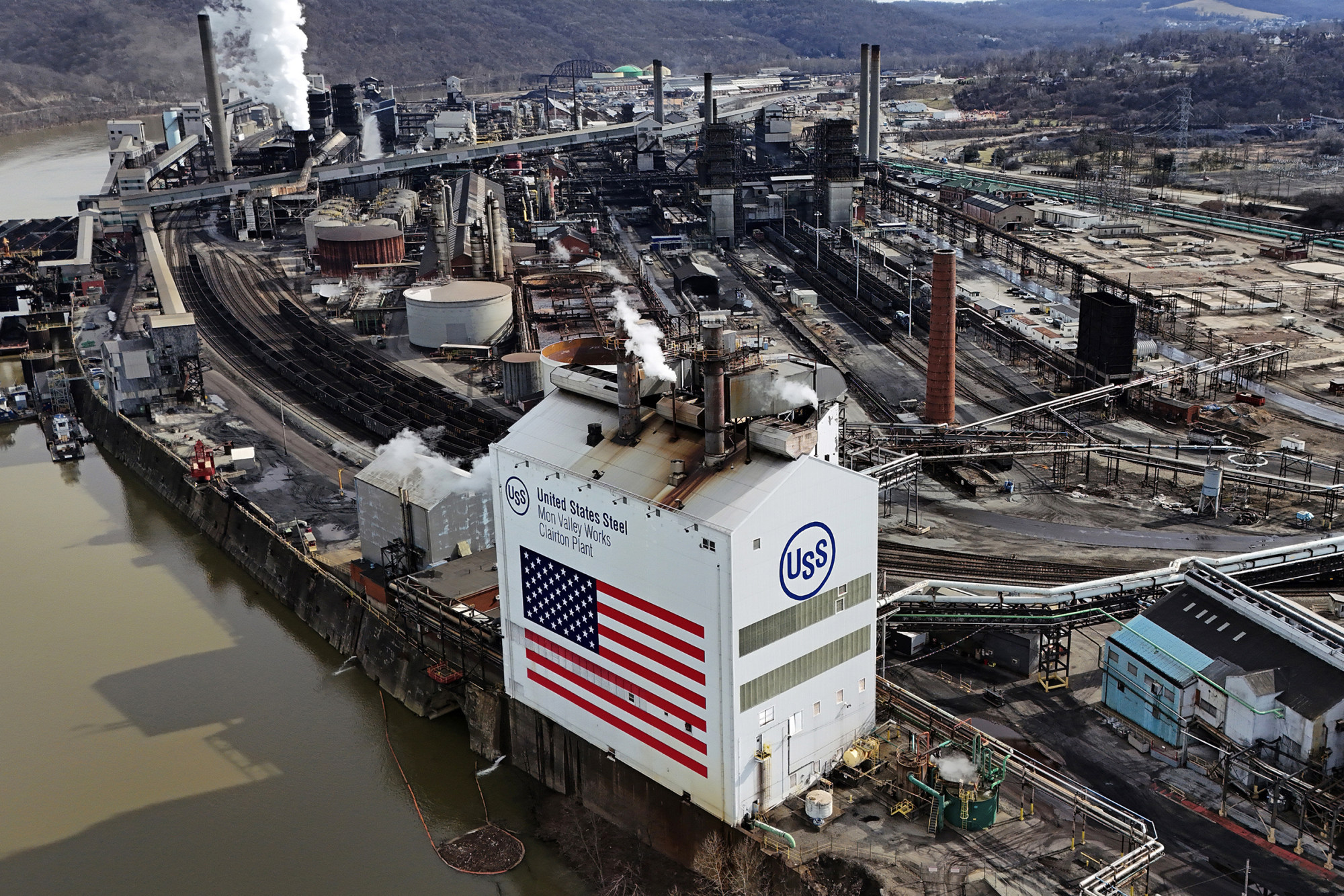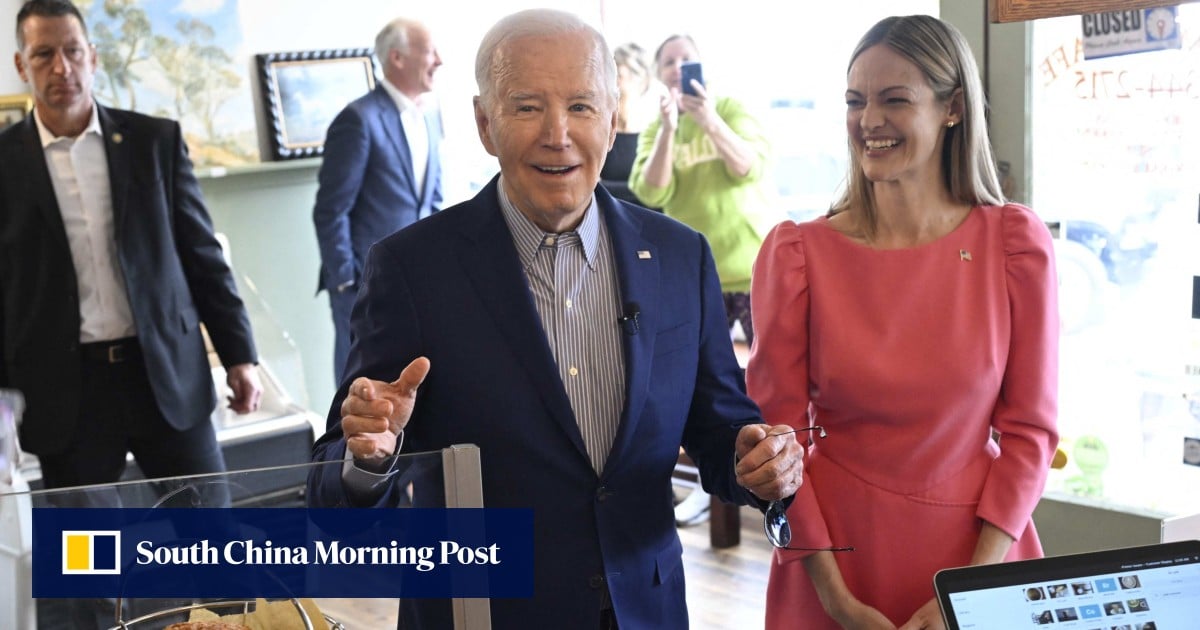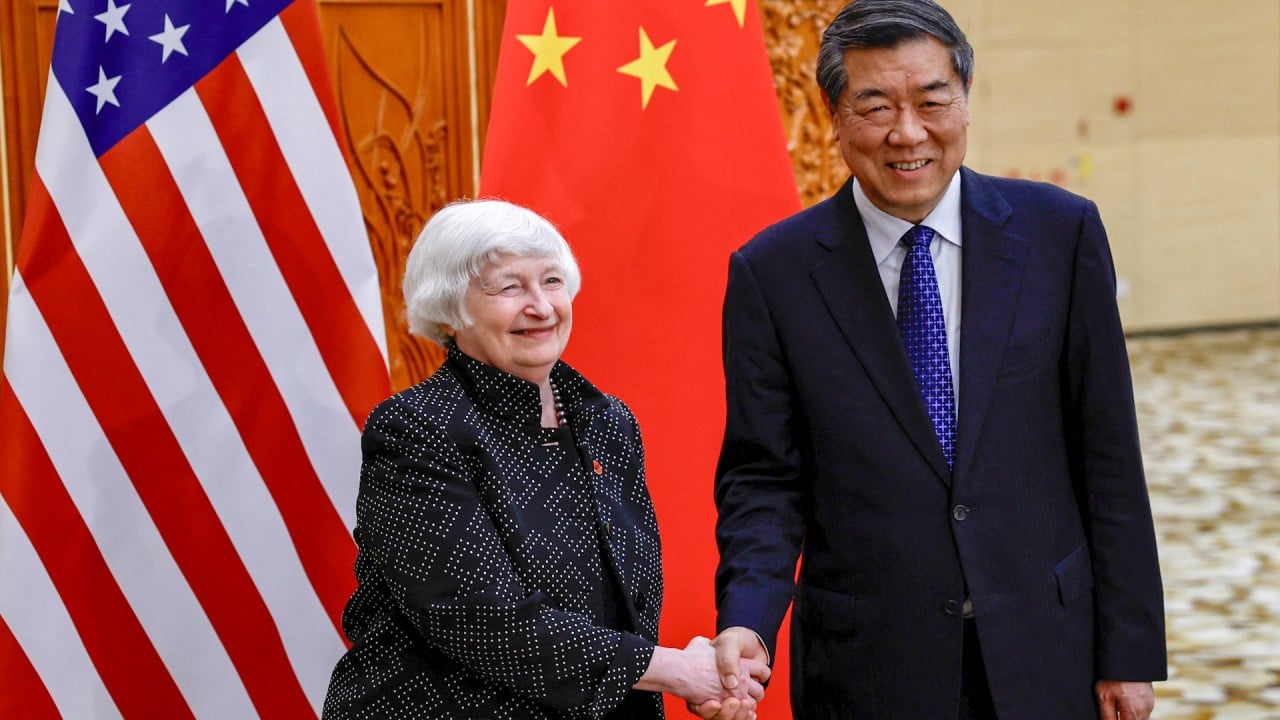In a related move on Wednesday, Biden directed US Trade Representative Katherine Tai to start an investigation under Section 301 of the Trade Act of 1974 into China’s alleged subsidies in shipbuilding, logistics and the maritime industry following a complaint by five national labour unions.
Steel and aluminium imports from China currently face tariffs of 7.5 per cent that, under the proposal, would rise to 22.5 per cent. These would be added to national security tariffs imposed by the Trump administration that remain in place, amounting to 25 per cent on Chinese steel and 10 per cent on Chinese aluminium.
China “utilises a wide range of non-market policies and practices to undermine fair competition and dominate the market, both in China and globally”, Tai said. “I pledge to undertake a full and thorough investigation into the unions’ concerns.”
Section 301 trade moves under US law are subject to a months-long comment and review period before they are enacted.
Biden has made the rebirth of American manufacturing a central theme of his presidency, pushing the passage of landmark legislation that directed some US$50 billion to shore up the nation’s semiconductor industry and another US$370 billion to boost the environmental technology and green energy sectors.
‘External demand story appears’: 5 takeaways from China’s March trade data
‘External demand story appears’: 5 takeaways from China’s March trade data
“Certainly this is an election-year initiative, meant to appeal to audiences in battleground states like Pennsylvania and Ohio,” said Kevin Nealer, a principle with the Scowcroft Group, formerly on the board of the Overseas Private Investment Corporation. “It’s a bid to garner support of steelworkers rank and file – he has the leadership endorsement – and to fortify his trade policy for the middle class theme.”
“You may have heard that there is an election in November,” said Rod Hunter, a partner with Baker McKenzie who was formerly with the National Security Council. “It does not seem random that the Commerce Department also recently announced initiation of an investigation of security risks associated with ‘connected vehicles,’ an investigation that could lead to the banning of imports of Chinese electric vehicles as well as auto parts from China.”

In another election-related move, Biden announced earlier this year that he would oppose Nippon Steel’s US$41 billion bid to take over US Steel, winning points with the steelworkers’ union, which opposed the transaction and quickly endorsed him.
Administration officials say they also plan to start working with Mexico to prevent China from trans-shipping goods to evade tariffs.
Analysts said the president’s trade and industrial policy were inflationary but would not be hugely noticeable given the size of America’s US$28 trillion economy.
But China’s reliance on exports is now proportionally greater than was Japan’s in the 1980s, they added, creating resistance from developed countries and undercutting Beijing’s bid to drive a wedge between Washington and Brussels.
On Wednesday, China pushed back on the idea that it was using cheap exports to work its way out of its downturn.
Joe Biden extends EU steel, aluminium tariff exemption for 2 years
Joe Biden extends EU steel, aluminium tariff exemption for 2 years
“The notion that China’s overcapacity harms the global market is a complete fallacy,” said Foreign Ministry spokesman Lin Jian in Beijing. “Those who spread that narrative to justify protectionism have nothing to gain from it and will only destabilise and disrupt industrial and supply chains, hinder the world’s green transition and curb the growth of emerging sectors.”
Analysts said Beijing had been through enough US election cycles to read the politics driving Biden’s recent trade moves and would likely hold its fire.
“The Beijing playbook in response is very predictable,” said Nealer. “China will protest the idea but won’t roll out a response until Biden acts. When that happens it will be proportional but probably asymmetric – going after American firms in unrelated sectors to create maximum pain.”
Despite his pledge to review Trump-era policies – and pressure from the US business community – Biden has retained Trump’s US$300 billion in punitive tariffs on Chinese goods that led to the continuing US-China trade war.
Additional reporting by Liu Zhen


